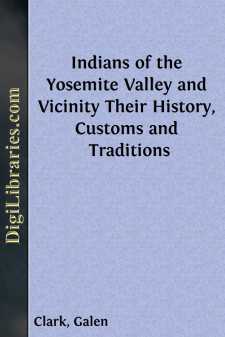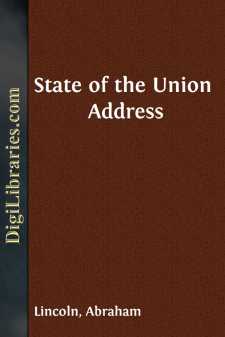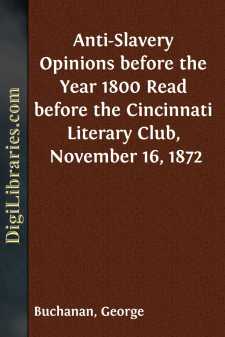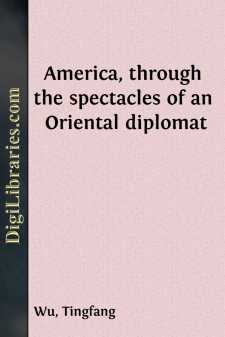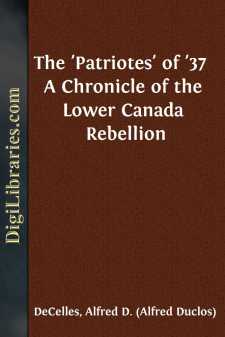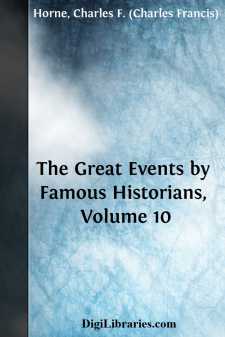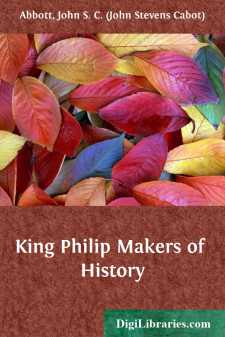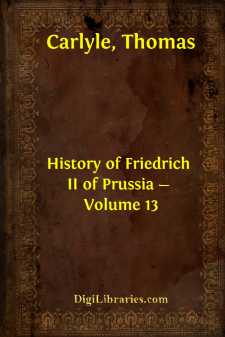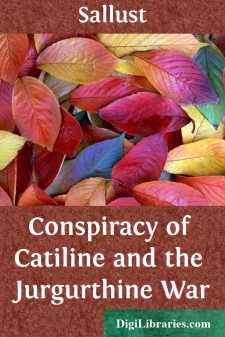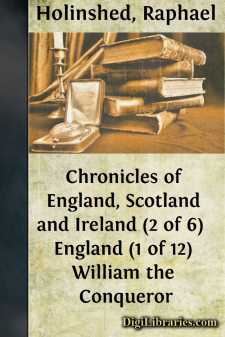History
- Africa 30
- Americas (North Central South West Indies) 50
- Ancient 68
- Asia 58
- Australia & New Zealand 8
- Canada 41
- Caribbean & West Indies 1
- Civilization 20
- Eastern Europe 12
- Europe 310
- Expeditions & Discoveries 60
- General 77
- Historical Geography 1
- Jewish 9
- Latin America 3
- Medieval 8
- Middle East 13
- Military 248
- Revolutionary 8
- Study & Teaching 5
- United States 353
- Western Europe 56
- World 13
History Books
Sort by:
by:
Galen Clark
Chapter One. EARLY HISTORY. During the past few years a rapidly growing interest in the native Indians has been manifested by a large majority of visitors to the Yosemite Valley. They have evinced a great desire to see them in their rudely constructed summer camps, and to purchase some articles of their artistic basket and bead work, to take away as highly prized souvenirs. They are also anxious to...
more...
by:
Abraham Lincoln
Fellow-Citizens of the Senate and House of Representatives: In the midst of unprecedented political troubles we have cause of great gratitude to God for unusual good health and most abundant harvests. You will not be surprised to learn that in the peculiar exigencies of the times our intercourse with foreign nations has been attended with profound solicitude, chiefly turning upon our own domestic...
more...
by:
George Buchanan
I purpose this evening to call the attention of the Club to the state of anti-slavery opinions in this country just prior to the year 1800. In this examination I shall make use of a very rare pamphlet in the library of General Washington, which seems to have escaped the notice of writers on this subject; and shall preface my remarks on the main topic of discussion with a brief description of the...
more...
by:
Tingfang Wu
Chapter 1. The Importance of Names "What's in a name? That which we call a roseBy any other name would smell as sweet." Notwithstanding these lines, I maintain that the selection of names is important. They should always be carefully chosen. They are apt to influence friendships or to excite prejudices according to their significance. We Chinese are very particular in this matter. When a...
more...
CANADIANS, OLD AND NEW The conquest of Canada by British arms in the Seven Years' War gave rise to a situation in the colony which was fraught with tragic possibilities. It placed the French inhabitants under the sway of an alien race—a race of another language, of another religion, of other laws, and which differed from them profoundly in temperament and political outlook. Elsewhere—in...
more...
CHARLES F. HORNE Philip II succeeded his father Charles V on the throne of Spain. The vast extent of his domains, the absoluteness of his authority, and, above all, the enormous wealth that poured into his coffers from the Spanish conquests in America, made him the most powerful monarch of his time, the central figure of the age. It was largely because of Philip's personal character that the great...
more...
Chapter I. Landing of the Pilgrims. 1620-1621Arrival of the Mayflower.On the 11th of November, 1620, the storm-battered Mayflower, with its band of one hundred and one Pilgrims, first caught sight of the barren sand-hills of Cape Cod. The shore presented a cheerless scene even for those weary of a more than four months voyage upon a cold and tempestuous sea. But, dismal as the prospect was, after...
more...
by:
Thomas Carlyle
Chapter I. — BRITANNIC MAJESTY AS PALADIN OF THE PRAGMATIC. Part, is now perhaps conceivable to readers. But as to the Second, the Germanic or Pragmatic Part,—articulate History, after much consideration, is content to renounce attempting these; feels that these will remain forever inconceivable to mankind in the now altered times. So small a gentleman; and he feels, dismally though with heroism,...
more...
by:
Sallust
THE ARGUMENT. The Introduction, I.-IV. The character of Catiline, V. Virtues of the ancient Romans, VI.-IX. Degeneracy of their posterity, X.-XIII. Catiline's associates and supporters, and the arts by which he collected them, XIV. His crimes and wretchedness, XV. His tuition of his accomplices, and resolution to subvert the government, XVI. His convocation of the conspirators, and their names,...
more...
Considering with my selfe, right Honorable and my singular good Lord, how redie (no doubt) manie will be to accuse me of vaine presumption, for enterprising to deale in this so weightie a worke, and so far aboue my reach to accomplish: I haue thought good to aduertise your Honour, by what occasion I was first induced to vndertake the same, although the cause that moued me thereto hath (in part) yer...
more...


